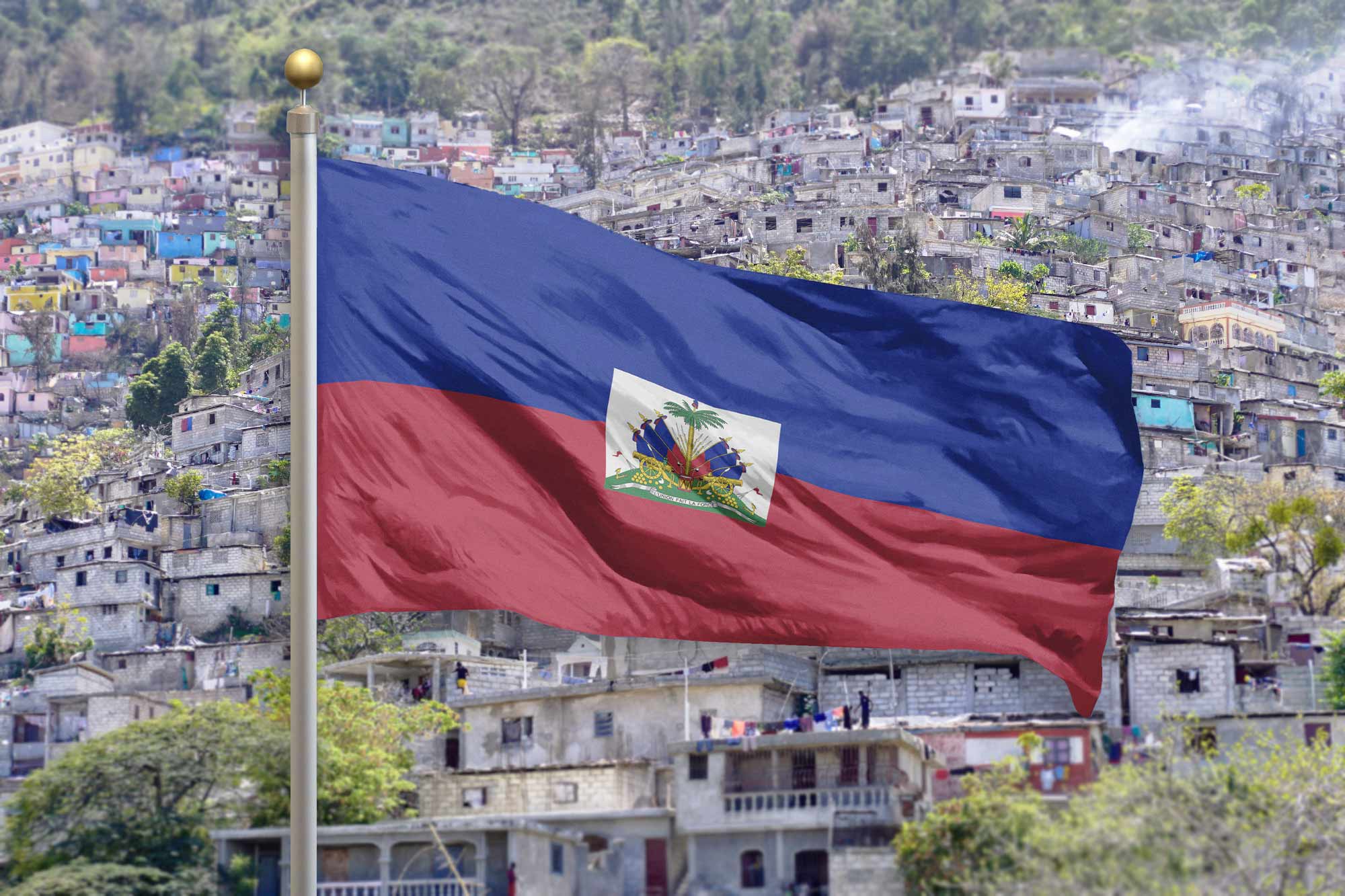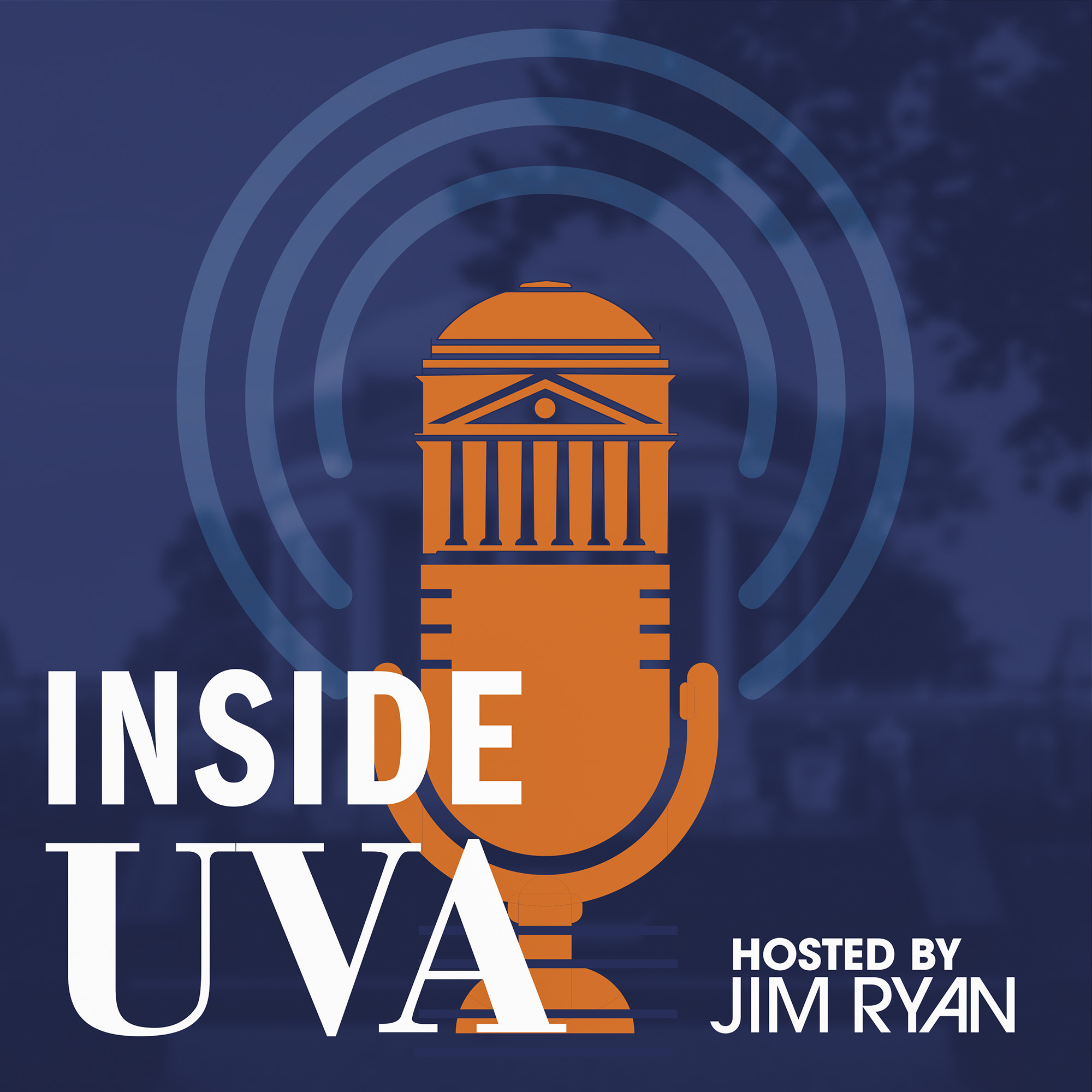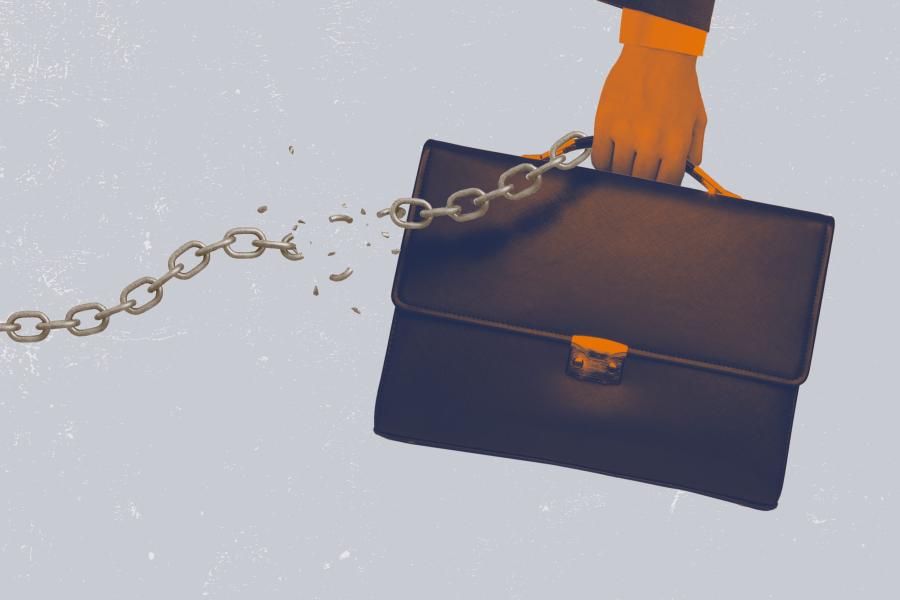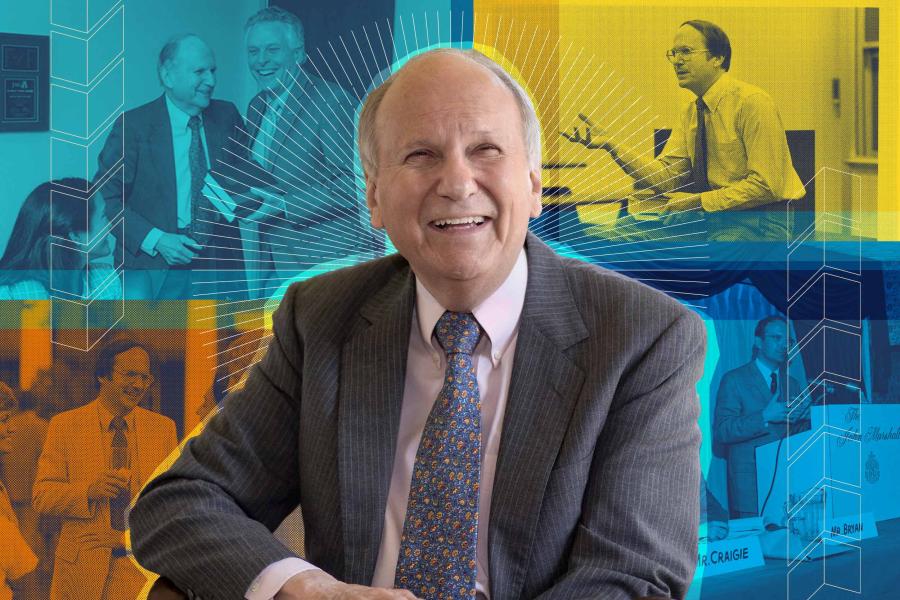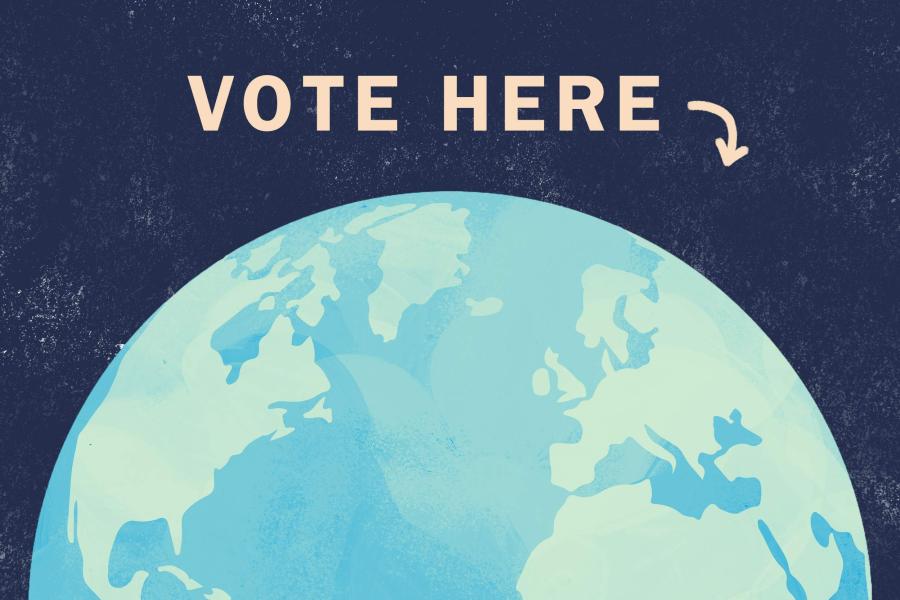The government of Haiti has collapsed, armed gangs have de facto control of the capital, Port-au-Prince, and foreigners are being evacuated as the country continues its slide into chaos.
Robert Fatton Jr., the Ambassador Henry J. Taylor and Mrs. Marion R. Taylor Professor of Politics at the University of Virginia, is Haitian-born, and he frequently visits the country where his siblings and extended family reside. He is the author of “Haiti’s Predatory Republic: The Unending Transition to Democracy,” “Haiti: Trapped in the Outer Periphery” and “The Guise of Exceptionalism: Unmasking the National Narratives of Haiti and the United States.”
UVA Today sought perspective from Fatton on the country’s current predicament, calling upon his personal and political knowledge of Haiti’s disordered circumstances.
Q. What’s the latest you have heard about the situation there?
A. The gangs control the capital city, and they have better weapons than the police. So far, the police are incapable of repelling them. While the rest of the country is not doing well, it has not come under the violence of armed men. In Port-au-Prince, the airport is still closed and the port has been taken over by the gangs. They control virtually all commercial traffic into the capital as well as the most important highways leading to the north and south of the country. The armed men have surrounded the National Palace and the government is barely functioning. The current prime minister has been stranded for several weeks in Puerto Rico, and it’s unlikely he will go back. He’s supposed to resign once a new government is installed. This new government is in the process of being formed.
Since March 11, Caribbean countries, the U.S., France and Canada have been seeking to impose a solution – a presidential college. The college is supposed to have seven voting members, representing different political parties and civic associations, and two observers. The members, however, have yet to agree on some basic issues before the college takes official form. For instance, one of the main groups decided to withdraw because it rejected foreign interference in Haiti’s politics, only to abruptly reverse itself, rejoin the college, and accept an international intervention. Moreover, some of the seven groups changed their chosen representatives and bickered over whether the two observers should have voting rights.
If the presidential college becomes the new government, it will name a president and a prime minister. At that point, a contingent of Kenyan police officers is supposed to be deployed in Port-au-Prince to help the Haitian police restore a modicum of order.
The United States and other international actors have crafted this political dispensation hoping that it will resolve the current crisis. Not all Haitian political forces are on board, however; some reject foreign involvement in the internal affairs of the country, and the armed men, for one, have threatened to fight the presidential college as well as the Kenyans.
Q. Are the Kenyans still involved?
A. Antony Blinken, the U.S. Secretary of State, and William Ruto, the president of Kenya, are prepared to be deployed in Haiti. Constitutional and funding considerations that had initially hampered Kenya from sending its officers to Haiti seem to have been resolved.
Kenya, however, has indicated that the mission can be deployed only if a new Haitian government is in place. In addition, while 1,000 officers were originally set to put boots on the ground, that number has been reduced to some 400. There is no reason to believe that this Kenyan force will be powerful enough to succeed in silencing the guns of the armed men who have clearly stated they will not tolerate any type of foreign dispensation, nor accept foreign officers in the country.
Q. Are the gangs still fighting among themselves?
A. That’s what has changed. The gangs used to fight among themselves, but they federated in early March into what they called “living together.” The visible face of the armed men is Jimmy Chérizier, called “Barbecue,” who seems to be their spokesperson. He has very clearly stated that the crisis cannot be solved without their active participation in the creation of a new government. Otherwise, he warns, the gangs will continue to use their weapons to achieve their goals.
Q. Do you think there will be intervention from the U.S., Canada and/or Mexico?
A. When the crisis started about 2½ years ago, the U.S. first said “no American troops.” Then the U.S. approached the Chileans, the Mexicans and the Brazilians, and they said “no.” The Canadians wavered and then said “no.”
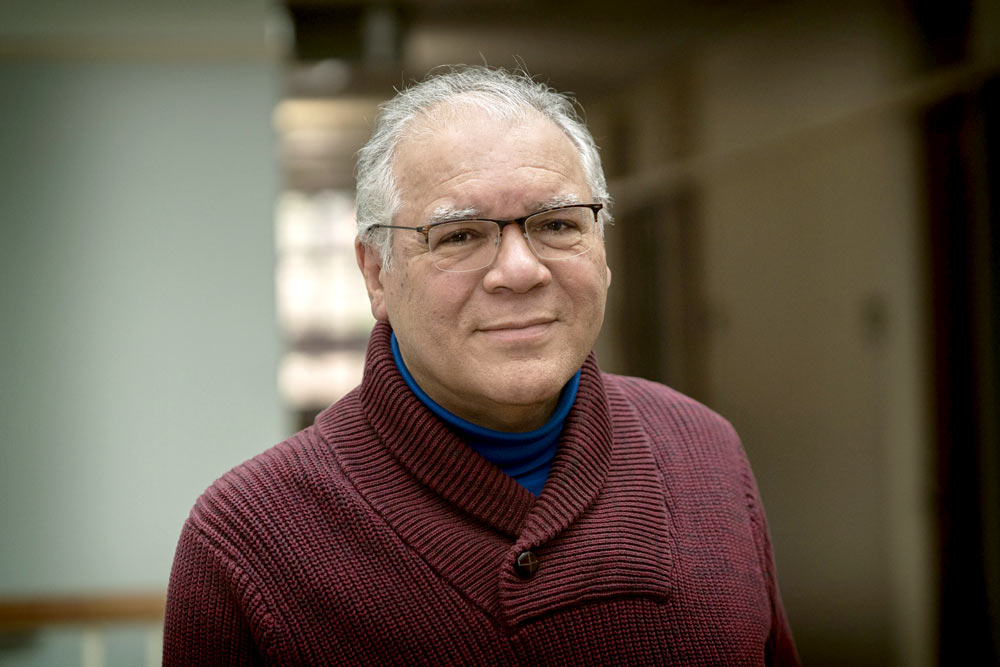
While political science professor Robert Fatton is pessimistic, he never thought the situation in Haiti would get this bad. (Photo by Dan Addison, University Communications)
It’s not clear whether the Biden administration might not ultimately intervene. Last week, the U.S. sent a contingent of Marines to evacuate the so-called non-essential personnel from the U.S. embassy in Port-au-Prince – the fourth-largest U.S. embassy in the world – and soon afterward it sent another special force trained in anti-terrorism. So, if things were to totally collapse, with, for instance, the gangs taking over the National Palace and the airport, it is quite conceivable that those special troops might be used.
Q. Do other nations assume the U.S. will step in?
A. That may be the case. If there is a total collapse, you’re dealing with immigrants not only trying to get into the U.S., but also other nations.
In an election year, this is a big deal. Haiti is a few hundred miles away from Miami, so you are dealing with a potentially explosive issue for Biden. It would look extremely bad for his administration to have on television a collapsing state with people shooting at each other and trying to emigrate. There is also a very real possibility of a major humanitarian and food crisis.
Q. What do you see ahead in the next several weeks or months?
A. I hope as always that the violence does not escalate. I hope that the presidential council can work out its differences and pick a president and a prime minister so a functioning regime is established. But that’s the easy part.
The difficult part is how do you deal with the armed men? They simply cannot be ignored. Is amnesty a possibility? Would that be enough to silence their guns? Or is a foreign-led military confrontation with the gangs inevitable? Whatever may be the new government in Haiti, it cannot function without reestablishing state authority and control of the capital. Finally, there is the possibility that facing well-trained and -equipped forces, the armed men might just decide to put down their weapons.
I tend to be pessimistic, but the situation is despairing, and I never thought that it would get that bad. This is probably the most acute crisis that the country has faced in my lifetime, and I am neither young nor oblivious of past periods of pain and suffering.
Media Contact
University News Associate Office of University Communications
mkelly@virginia.edu (434) 924-7291
Article Information
April 30, 2024

